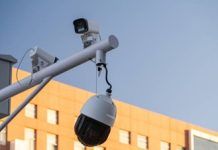If you thought only large critical infrastructure and big corporations would always bear the brunt of the rise in cyberattacks, you could not be further from the truth. In India, smartphones, the device that most people now carry in their pockets, have become a very large attack centre, said a top security expert.
According to government data, cybersecurity incidents reported till October this year reached 3.13 lakh. While 50,362 and 53,117 cybersecurity incidents were reported in 2016 and 2017, respectively, such incidents increased to 2,08,456 in 2018.
“In India, mobile is very much a large attack centre. There have been a lot of attacks, especially against Android-based smartphones in India. There are protections available and a lot of companies are starting to look into various options, but smartphones, for both the attack side and the protection side, there is a big market,” Tony Jarvis, Chief Technology Officer APAC at Check Point Software Technologies, said. According to the Israel-based cybersecurity solution provider, 80 percent of the attacks that happen in India come through email.
“We also know that Cloud is another big one. We’ve seen in the last couple of years, organisations are making their way into the Cloud,” Jarvis said. Now they are starting to realise that there are things that can go wrong, there are vulnerabilities that can be exploited and they are starting to consider protecting those Cloud environments as well. Across mobile and Cloud, they are two of the biggest things we have been saying for the last 12 months,” he added.
India, Jarvis said, is Check Point’s fastest growing region in the Asia Pacific. The company has 150 “local staff” in India. Talking about the cybersecurity trends next year, Jarvis said that Internet of Things (IoT) is already something that organisations are using but unfortunately, it is not something that they are protecting.
“There is not a lot of security happening. But that is starting to change. We are going to see a lot of that happening in 2020. There are security protections that can be used and that’s certainly a focus area for us as an organisation,” he said.








